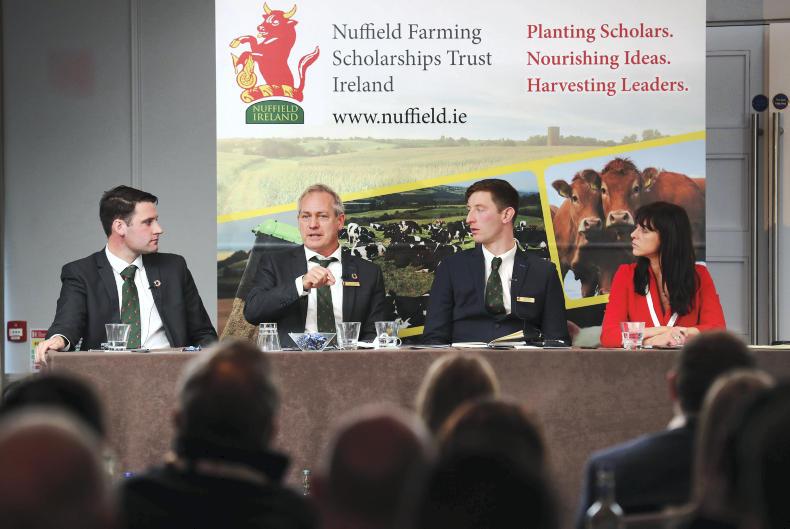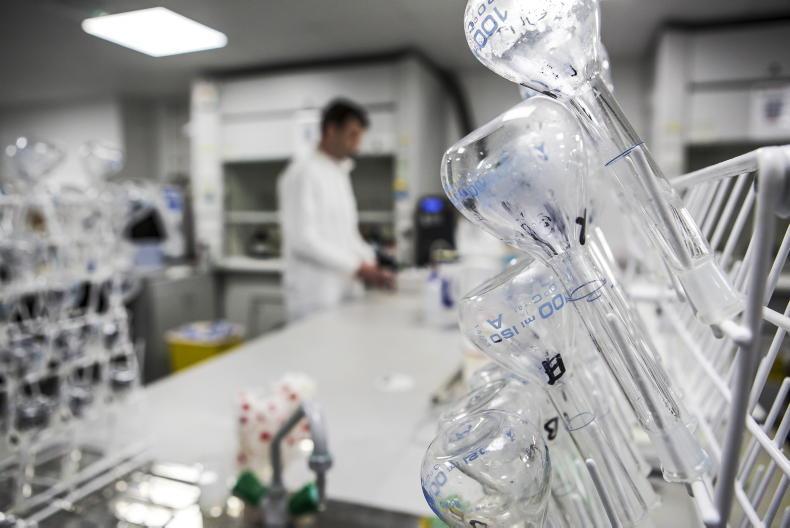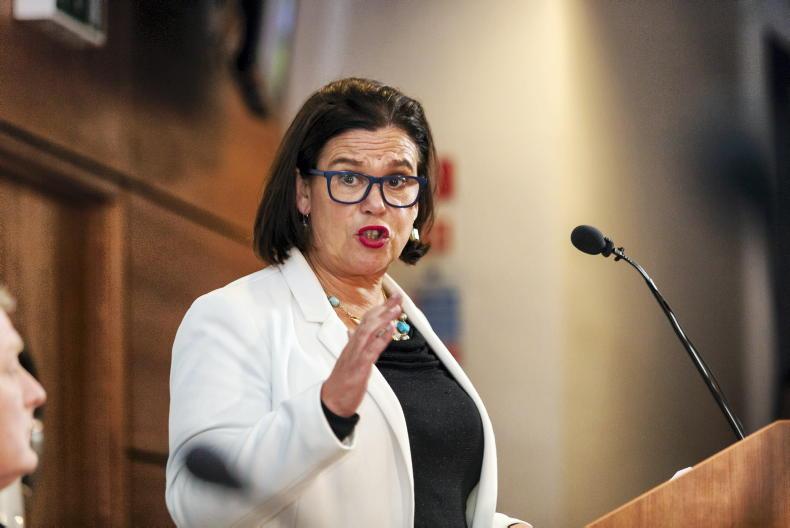This year’s Nuffield conference provided plenty of food for thought with the five returning scholars presenting reports on a wide range of subjects to the 100-strong crowd in attendance.
Karol Kissane, a dairy farmer from Kerry and a 2018 scholar, called for increased industry funding for Agri Aware or a similar body to support the education of children in primary schools on food and farming.
Since undertaking his scholarship, Kissane has been trying to educate schoolchildren in Dublin about agriculture via an innovative new idea called “Facetime a Farmer”. This simple idea originated in the UK and sees a farmer speak directly with a school via Facetime or Skype for about 15 minutes every two weeks directly from the farm.
“Every farmer has a smartphone. All that is involved is a simple call to a primary school class from the farm once every two weeks. This is a simple educational tool that is working effectively in the UK,” said Kissane.
Klaus Laitenberger, a 2018 Nuffield scholar from Co Leitrim and an organic vegetable grower, called for Irish farmers to grow new types of crops to improve profitability and tackle climate change.
Laitenberger singled out two crops, yacon and Jerusalem artichoke, which he said would grow well in Ireland and could be very profitable for farmers.
Jerusalem artichokes in particular can sequester, or capture, twice as much carbon dioxide from the atmosphere as a tree.
Irish Farmers Journal vet Tommy Heffernan was also a returning scholar this year and spoke of the “stress gap“ that affects the cow. Heffernan said the further the cow is from what she wants, the more stressed she is. Proposing a grass-based welfare benchmark to minimise any cow stress, Heffernan recommends that one of the key metrics on dairy farms should be longevity.
“If we maximise the genetics, the cow will stay in the system longer and be more environmentally efficient,” he said.
Higher welfare standards
Colm O’Leary, a dairy farmer from Cork, called for much higher calf welfare standards on Irish dairy farms. He said the sector needs to build a culture of reporting poor animal welfare standards instead of ignoring bad practice.
“You can’t convince consumers you care about animal welfare unless you’re willing to criticise yourself. It’s more important to be courageous than courteous when it comes to animal welfare,” said O’Leary.
The Cork-native called for Irish research on best-practice calf welfare, and a gradual increase in the minimum number of days dairy calves should be kept on farms.
Grass-fed dairy products
Joe Lyng from Kilkenny studied the growing market for grass-fed dairy products for his Nuffield scholarship. He called on the Irish dairy industry to commission a study to look at the specific health benefits of grass-fed milk, specifically around the benefits of increased CLA (a beneficial fatty acid) in grass-fed milk.















SHARING OPTIONS